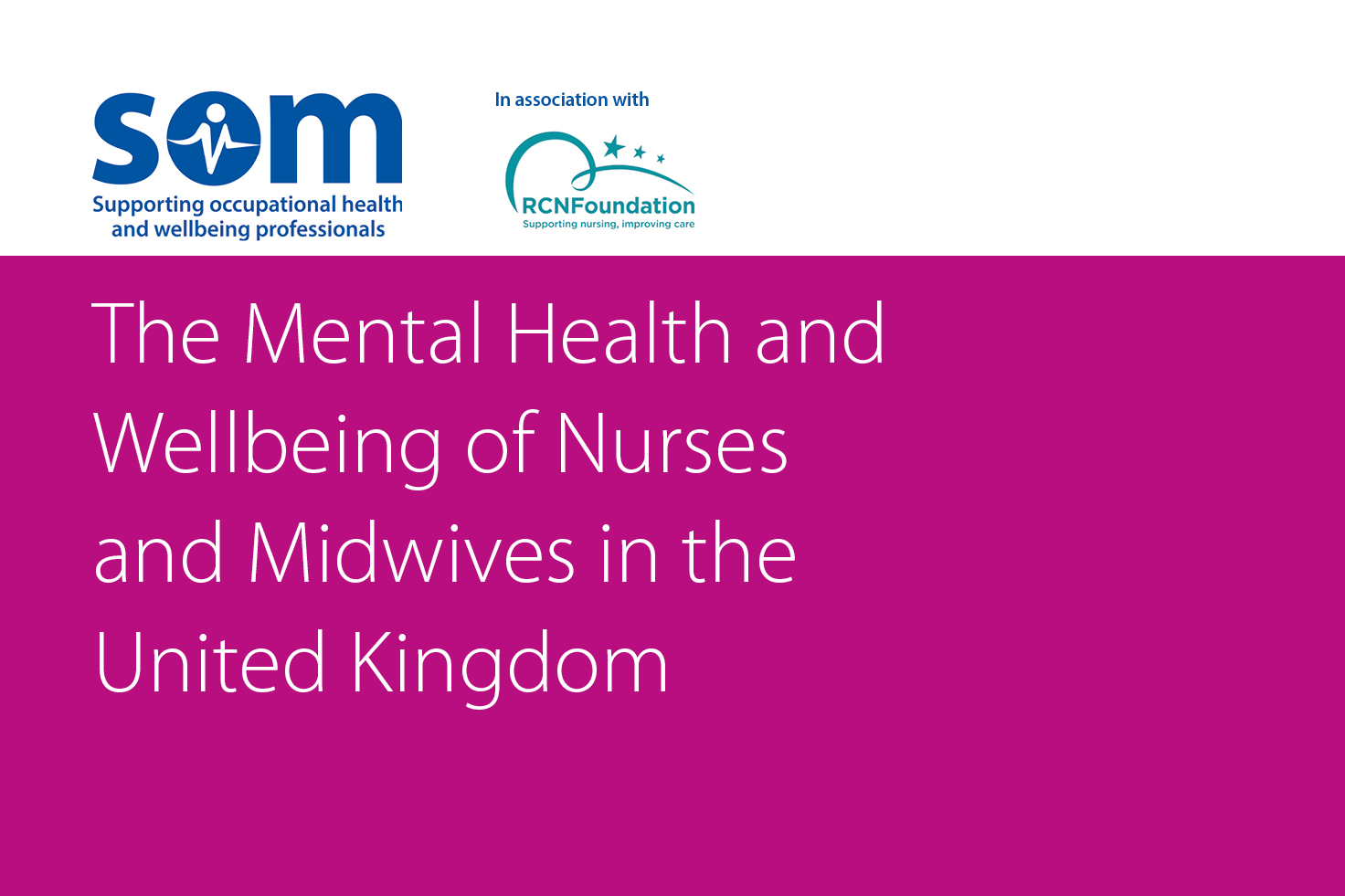
Current working conditions experienced by nurses and midwives pose a significant threat to their mental health, finds a new report from The Society of Occupational Medicine (SOM), commissioned, and funded by the RCN Foundation. The report, “The Mental Health and Wellbeing of Nurses and Midwives in the United Kingdom” identifies the high risk of mental health problems and burnout in the professions. It also finds that working conditions not only threaten the health of nurses and midwives, but also impact on their ability to deliver high quality care to patients.
The report, authored by Professor Gail Kinman and Dr Kevin Teoh from Birkbeck University of London and Professor Anne Harriss, President of the SOM, and an experienced nurse, reviewed and analysed the research evidence on the mental health of nurses and midwives in the UK.
Professor Harriss said: “The report clearly highlights the lack of knowledge and training of managers to deal with the high level of stress experienced by nurses and midwives. For example, many ward managers receive minimal, if any, training regarding the impact of shift work on the health of staff. This knowledge is essential when planning staffing rotas to mitigate any possible negative impact on health.”
Professor Kinman said: “Action is urgently needed to improve the mental health and wellbeing of UK nurses and midwives and the COVID-19 pandemic has raised additional concerns. The additional demands placed on staff by the pandemic means their wellbeing is likely to deteriorate further if the findings of our report are not acted upon. Our report has highlighted the need for evidence-informed, systemic interventions to tackle the causes of work-related stress in the sector and we have identified some initiatives that might be particularly effective.”
Deepa Korea, RCN Foundation Director says: “The challenges faced by the nursing and midwifery profession in the current climate means that the mental health and wellbeing of nurses and midwives has never been more important. The Foundation will continue to focus on this critical issue to ensure it receives the attention it deserves.”
Dr Teoh said: “Our report highlights the excessive demands experienced by nurses and midwives in the UK and how this affects their mental health. It also identifies areas where our knowledge is very limited, such as the experiences of ethnic minority nurses and midwives and how their needs can be best addressed.”
Dr Shriti Pattani, Chair, NHS Health at Work Network said: “The report highlights the significant levels of mental ill health among our nurses and I suspect the figures will be even more alarming due to Covid. It is vital that this level of ill health is addressed at a national as well as a local level. Compassionate leadership and culture change in the NHS is necessary if we are to tackle the issues in the workplace that make our nurses feel unwell. Occupational health services are the experts on the relationship of 'health and work' and are well placed to support nurses and advise the organisation on psychological risk assessment and management of those risks. Investment in NHS Occupational Health Services is important if they are to provide support to all healthcare workers."
Action is needed to address the organisational causes of poor mental health and wellbeing in nurses and midwives (e.g. high work demands, poor leadership, lack of resourcing and workplace bullying). The authors found that many staff are reluctant to disclose mental health difficulties and avoid asking their managers for support. Where support is available, information is often poorly disseminated. To avert a mental health crisis among staff, more healthy working environments are needed for nurses and midwives, the stigma of disclosing mental health problems should be reduced, and managers and leaders need training to identify and alleviate stress in staff.
The report also recommends that phased approaches to return to work should be available to nurses and midwives who are struggling with their mental wellbeing. They should be able to self-refer to services, or for occupational health support, rather than go through their managers. It is particularly important for them to be given the time to access support systems and to participate in interventions and training.
Finally, nurses and midwives should be also be required to take their full entitlement to breaks and always have access to appropriate food and drink and bathroom facilities.
The report was commissioned and funded by the RCN Foundation and written before the COVID-19 pandemic hit. The report’s authors say that there is now evidence that the pandemic has highlighted further mental health concerns for nurses and midwives, related to lack of safety equipment, health risks posed to themselves and their families, and the death of colleagues. SOM is calling for a summit to understand the true impact of the pandemic on the mental health and wellbeing of nurses and midwives, which groups are at higher risk, and what can be done to alleviate the problems and support individuals.
Read the report here.
Read the full press release here.

